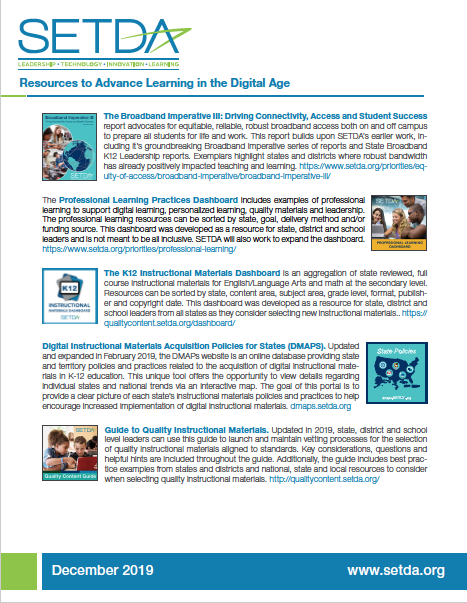

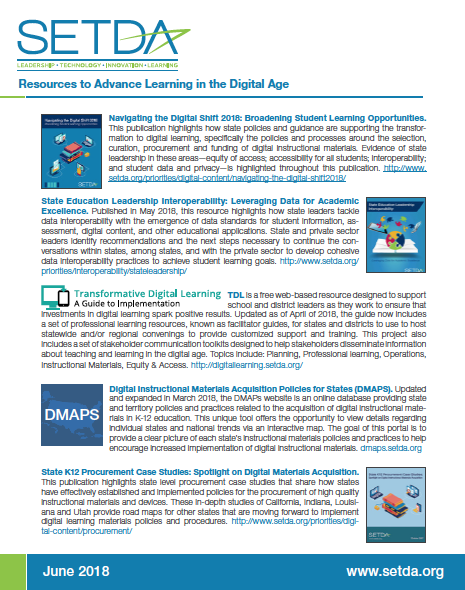
SETDA Resources 2018
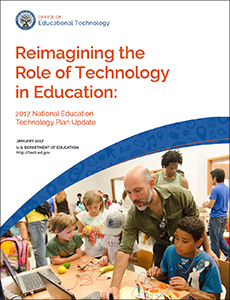
2017 National Education Technology Plan (NETP)
The National Education Technology Plan articulates a vision of equity, active use, and collaborative leadership to make everywhere, all-the-time learning possible.
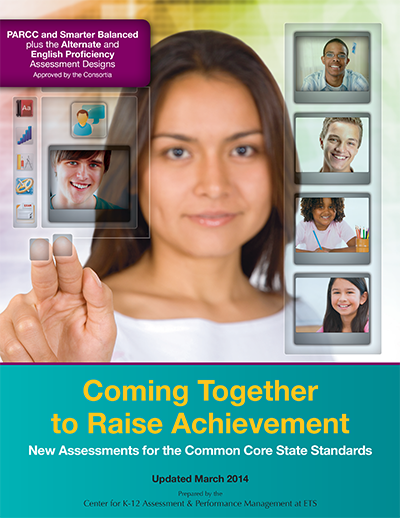
Coming Together to Raise Achievement: New Assessments for the Common Core State Standards (5th Edition)
This report contains consortia-approved summaries of their ongoing work as well as articles about technology readiness, near-term challenges and future opportunities to enhance the power of these systems to support student readiness for college and careers. SETDA’s Doug Levin and Geoff Fletcher co-author an chapter titled “Crossing the Chasm to Digital Teaching, Learning and Assessment” (page 57).
Need Help Transitioning to Online Assessment?
CCSS Assessments: Are you ready?
The Waterbed Effect in K-12 Education

National Education Technology Plan 2020
The National Education Technology Plan is the flagship educational technology policy document for the United States. The Plan articulates a vision of equity, active use, and collaborative leadership to make everywhere, all-the-time learning possible. While acknowledging the continuing need to provide greater equity of access to technology itself, the plan goes further to call upon all involved in American education to ensure equity of access to transformational learning experiences enabled by technology. The principles and examples provided in this document align to the Activities to Support the Effective Use of Technology (Title IV A) of Every Student Succeeds Act as authorized by Congress in December 2015.
SETDA Report: Technology Requirements for Large-Scale Computer-Based and Online Assessment: Current Status and Issues
This report provides a snapshot of the current technology requirements for select states implementing large-scale, online summative assessments (and for formative and other assessments when available). In addition, it presents a list of issues for the Race to the Top consortia and states to consider as they make decisions regarding their technology requirements for initial implementation by 2014-15 and beyond.
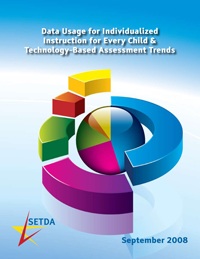
Technology-Based Assessments Improve Teaching and Learning
This paper focuses on the use of technology-based assessment systems to provide classroom teachers with innovative approaches for improving instruction for all students. Additionally, the report calls on states to redefine its role as “Data Compliance Officers” to “Data Leaders” – supporting the use of relevant, timely data at the school and district levels to improve instruction and teacher quality and drive school reform efforts.
